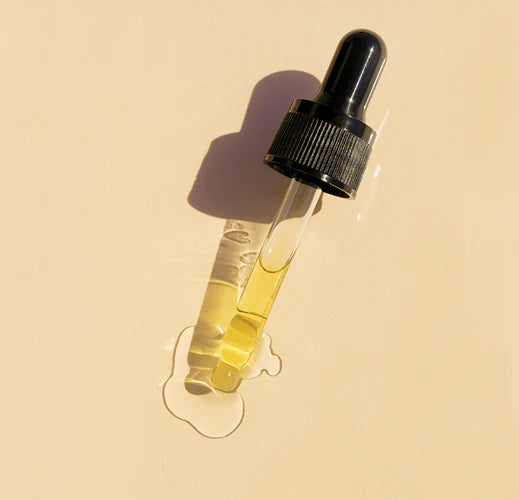Our skincare specialists debunk the top myths around Vitamin C, so you can be clued up on the facts.
The higher the % of Vitamin C the better?
A lot of people think that the higher the percentage of Vitamin C, the more effective it will be. This is not necessarily true as high concentrations of Vitamin C can be quite potent, causing irritation and symptoms like stinging and redness, as well as increasing your skin’s sensitivity. We believe that it is the formula and combination of ingredients that determine the efficacy of the product and not the percentage of the actives, as well as how the ingredients support each other’s function.
Vitamin C can’t damage my skin?
Incorrect! If Vitamin C becomes a pro-oxidant it can damage the skin. This also applies if the Vitamin C is unstable or out of date, which can affect the skin’s health. Vitamin C which has become pro-oxidant is dangerous to the skin because oxidization is a destructive process and can cause cellular damage. Any of the above can cause redness, burning, stinging or sensitivity of the skin, so be mindful when choosing Vitamin C products. If your skin has become inflamed by a Vitamin C product then discontinue use, give your skin a one week break and then follow up with an anti-inflammatory skincare regime by using products like our Isotonic Hydra-Serum.
Is Vitamin C affected by air?
Yes, Vitamin C is easily destroyed by air, as well as excessive heat and water. Oxygen and light react with Vitamin C to degrade it; this is accelerated when there are high temperatures too. When oxygen in the air reacts with Vitamin C, oxidisation occurs which breaks the Vitamin C down. Most Vitamin C is generally a water-soluble vitamin, but the great thing about our Super-C capsules is that they are oil-soluble instead, as they are comprised of Ascorbyl Tetraisopalmitate: a stabilized (heat and oxygen stable), non-acidic Vitamin C derivative of Ascorbic and Isopalmitic Acid. This superior form of Vitamin C is much more easily absorbed than regular Ascorbic Acid. We also blend it with Vitamin E so that both ingredients work synergistically to provide enhanced results at safer, lower levels.
Pure Ascorbic Acid is best?
We all know Vitamin C can be an unstable ingredient, but did you know almost half of it degrades on the skin within 30 mins? This is why other formulas using Ascorbic Acid require remarkably high percentages. After rigorous testing at our lab in Wales, we discovered that our Superior Vitamin C can be stabilized at a low percentage that won’t irritate the skin, it has three times the penetration power and produced far better long-term results than Ascorbic Acid. Ascorbic Acid also requires low pH (acidic) environment to be able to penetrate the skin and can cause peeling, stinging, irritation, and dryness of the skin.
You can never have too much Vitamin C?
Your body can't store vitamin C, so when you consume more than you need, the surplus is eliminated by your kidneys in urine. That doesn't mean, that big doses can't create unwanted side effects. The daily recommended dose is 40mg of vitamin C a day, and the upper limit is 2,000 mg a day.
Vitamin C is hard to absorb?
Vitamin C is a water-soluble vitamin, stored in the body in very small amounts. It is absorbed in the large intestines and is best consumed in a raw state, as it has a low absorption rate in the body and mostly gets destroyed in the digestive system. The Vitamin C that manages to get into the bloodstream then has a poor absorption rate into the body’s cells as struggles to penetrate the fat-based cell membrane.




